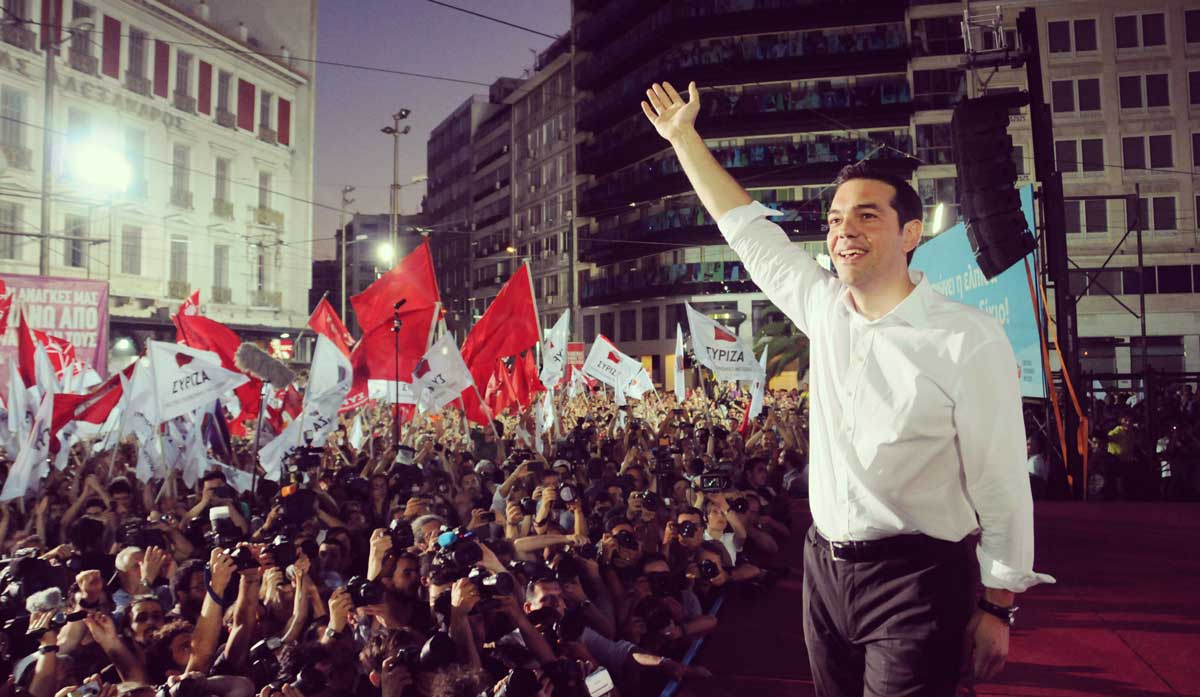James Shaw | Staff Writer
In Ireland we are used to encountering new political parties, through their rise and often, predictably, through their fall after brief existences. That’s not to say they’ve been without success though. From Clann na Poblachta’s three years in government beginning in 1948, to the Progressive Democrats’ four periods in office, emerging parties have enjoyed considerable electoral success in Ireland. Even in the last twenty years, a host of parties have formed and gained parliamentary seats, such as left factions the Socialist Party (Ireland), Anti-Austerity Alliance and United Left. Lucinda Creighton’s Reboot Ireland is the latest new party set to contest the next general election, purportedly to fill, at least in part, the void left from the dissolution of the aforementioned PD’s.
Casting a glance further afield, there are many examples in Europe of new parties rising insurgent against the traditional guardians of power. In Spain, Podemos is expected to make major inroads at the upcoming general election this year, it’s the second largest party nationally by number of members, despite only forming in 2014. In Italy, Beppe Grillo’s 5 Star Movement received the highest vote for any single party at the last general election, though it was eclipsed after coalitions formed. The most successful however, has been Syriza, which sensationally claimed the recent Greek election on an anti-austerity ticket, despite only registering as an official party in 2012.
With all three of those examples being founded in the last five years, it points to an accessibility which exists in European politics, whereby should the need arise, parties can be founded from the ground up with relative ease and go on to contest elections. It is a sign of a flourishing democracy, handing power to the people by providing them with genuine alternatives to the typical mainstream parties clustered around the centre-right and centre-left. While there are concerns against radical politics, heightened by the tumble in the Euro’s value to an 11 year low against the dollar on the Monday following Syriza’s win, it is nonetheless up to the people to decide who they deem worthy of election. Syriza’s win meant Greeks had a credible option aside from PASOK and New Democracy, the two parties who between them have held power in Greece from 1974 until this year.
What then of the USA, whose presidential elections loom on the horizon for 2016? Will there be a competitive third candidate, outside of the Republican vs. Democrat dichotomy? The answer is almost definitely not. While there are logistical difficulties in establishing a new party across such a large territory, it seems frustrating that voters are presented with only two candidates for whom to lead the most powerful country on earth, lest their vote be perceived as wasted.
Touted as the land of freedom and democracy, does it not seem rather stale that among the two houses which make up the US Congress, only two political parties have representation. An obvious factor behind this is the prohibitive cost of ‘electioneering’; a campaign for a seat in the House of Representatives on average costs over $1 million, with one for a seat in the Senate costing upwards of $6 million. Furthermore, the 2012 US presidential election cost over $7 billion, of which over $5 billion was through campaigning and party funding. Largely spent on advertising, the practice is defended as enabling communication with as many voters as possible. However, the implications are clear: the possibility of reaching office is closed off to the majority of people.
In addition, there is the worrying potential for corruption, those who donate such vast sums of money to campaigns may expect some return on their investment, beyond purely philanthropic donation. To that end, the US Supreme Court has ordered transparency as to who gives what. Crucially, it has failed to impose an upper limit on the sum of donations and ruled that corporate donations are part of a corporation’s right to free speech. With many people disappointed by a perceived ineffectiveness of the Obama regime, it is reasonable to assume that there are citizens still pining for that change which they voted for two presidential elections ago. Disappointingly, it is grossly improbable that such a change could ever materialise, unless it comes from within the two main parties, due to the Electoral College system whereby you vote for an elector who is bound to vote for a particular candidate. However, with nearly all electors having ties to the two main political parties, there is often not even a possible third option on the ballot, and so the two party system is further entrenched beyond burdensome campaign costs.
Looking back to Ireland, we are lucky as a small country insofar as our geography and system of proportionate representation, combined with individual donation limits, provides favourable circumstances for all parties to have their voices heard. By way of example, the minor parties of the factionalised left might draw inspiration from Syriza, a party which comprises of an alliance originally totalling 13 groups. In Ireland, there’s a similar array with an assortment of abbreviations: PBPA, TWUAG, AAA, UL, SP, SWP and the WP among others. I’m not suggesting they ought to band together and a frequent vacillation between radicals on the right and left could certainly give rise to instability and hinder inward investment. However, the very fact that they could do so and meaningfully challenge the ruling parties is a feature of our system which in itself is laudable. In other words, vive la démocratie!







